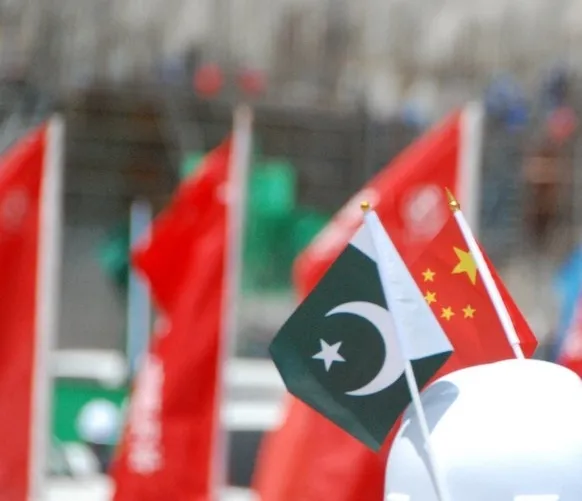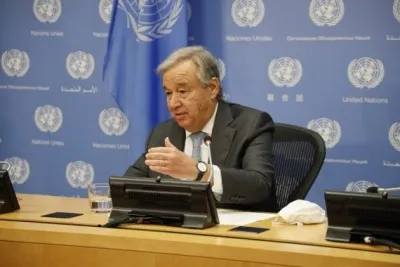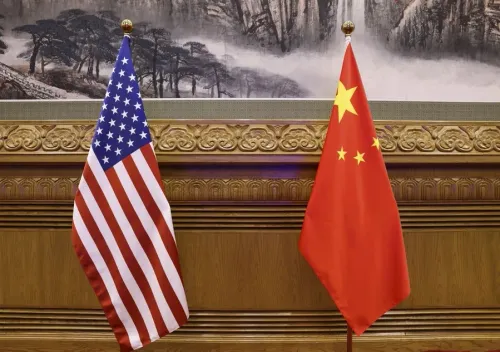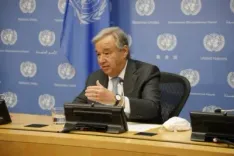The Decline of an Alliance: Challenges in Pakistan-China Relations (IANS Analysis)

New Delhi, Jan 1 (NationPress) In 2015, prior to Chinese President Xi Jinping's first visit to Pakistan, both nations engaged in extravagant proclamations to honor their alliance. This relationship was characterized as being higher than the Himalayas, deeper than the ocean, sweeter than honey, and stronger than steel.
This embellished description highlighted the strategic relevance of their bilateral interactions as part of President Xi's ambitious Belt and Road Initiative (BRI). The partnership was viewed as transformative for regional geopolitics, with the potential to reshape the strategic dynamics of South Asia.
However, by 2024, nearly a decade later, this partnership has faced substantial hurdles, primarily due to Islamabad's failure to ensure the security of Chinese investments and citizens.
As tensions escalate and Beijing appears to be reassessing its stance towards Pakistan, this decline reflects the systemic shortcomings of Pakistan's military-dominated establishment in securing internal stability and fulfilling its strategic obligations.
Often referred to as all-weather friends and iron brothers, Pakistan and China have historically maintained a close relationship.
Even during Pakistan's alignment with the US-led Western bloc throughout much of the Cold War, Islamabad and Beijing successfully nurtured a robust partnership. Over time, economic collaboration became a cornerstone of their relationship, witnessing a significant leap after Xi Jinping took office in 2012.
Under the leadership of President Xi, Pakistan emerged as a crucial element in China's Asian policy framework, with the China-Pakistan Economic Corridor (CPEC) becoming the flagship initiative of the Belt and Road Initiative.
By 2024, CPEC investments were estimated to surpass $62 billion, emphasizing their vital importance in the economic and geopolitical calculations of both nations.
Despite this auspicious beginning, the bilateral relationship has faced considerable turbulence in recent years. Pakistan's ongoing economic mismanagement, combined with a wave of insurgent attacks targeting Chinese interests and nationals, has placed strain on ties between the two countries.
A particularly notable incident occurred on October 6, 2024, when operatives from the Balochistan Liberation Army (BLA) attacked a convoy of Chinese workers near Karachi's Jinnah International Airport.
This assault, which resulted in the deaths of two Chinese engineers, underscored severe security shortcomings. Beijing's frustration over Islamabad's inability to protect its citizens and projects was apparent, leading the Chinese Ambassador to Pakistan, Jiang Zaidong, to issue an unusual public condemnation.
Ambassador Jiang called for immediate action to hunt down the culprits and implement measures to safeguard CPEC projects and Chinese personnel.
This attack was not an isolated incident. Earlier in March 2024, Pakistan experienced a series of violent attacks targeting Chinese nationals and CPEC-linked projects.
On March 20, insurgents from the BLA’s Majeed Brigade assaulted the heavily fortified Gwadar Port Authority Complex in Balochistan. As the flagship initiative of CPEC, the vulnerability of Gwadar Port raised serious concerns regarding Pakistan’s capacity to protect critical infrastructure.
This was followed by another attack on March 25, targeting Pakistan Naval Station (PNS) Siddique, a high-security naval airbase responsible for safeguarding CPEC assets. The breach of this military installation not only highlighted Pakistan’s security vulnerabilities but also diminished Chinese confidence in Islamabad’s ability to uphold its commitments.
The most devastating attack during this period occurred on March 26, when a suicide bomber associated with Tehreek-e-Taliban Pakistan (TTP) rammed an explosive-laden vehicle into a convoy of Chinese workers near Besham in Khyber Pakhtunkhwa.
This assault, which resulted in the deaths of five Chinese nationals and their Pakistani driver, further heightened tensions between the two countries. Beijing's response was unequivocal, framing the escalating threats to its nationals and projects as a critical red line.
Chinese authorities demanded strong assurances from Islamabad, including a comprehensive investigation, accountability for the assailants, and immediate measures to rectify security lapses.
These recurring attacks have severely strained Sino-Pakistani relations, compelling Beijing to exert pressure on Islamabad to initiate a nationwide military campaign against insurgent groups.
China's growing impatience was evident in its decision to postpone Prime Minister Shehbaz Sharif’s anticipated visit to Beijing in May 2024. Beijing attached this visit to Islamabad's explicit commitment to launch a counterterrorism operation, which Pakistan ultimately consented to.
Although Prime Minister Sharif eventually visited Beijing in June, the trip yielded little in terms of substantial economic commitments or new projects. This lukewarm reception hinted at a qualitative cooling in the bilateral relationship.
In response to Chinese demands, Pakistan initiated “Operation Azm-i-Istehkam” on June 22, a nationwide military campaign aimed at dismantling insurgent networks.
However, the effectiveness of this operation has been called into question, as attacks on Chinese interests have persisted. The trust deficit between the two nations has deepened, with Beijing reportedly urging Islamabad to permit the deployment of Chinese security personnel within Pakistan.
A report by Reuters on November 12, 2024, disclosed that Beijing had proposed a clause allowing Chinese security agencies and military forces to conduct joint counterterrorism operations on Pakistani soil.
While Islamabad has resisted this demand, it has counter-proposed the creation of a specialized security firm, developed with Chinese assistance, to protect Chinese nationals and projects.
Despite these overtures, Beijing’s dissatisfaction remains evident.
The deteriorating relationship between China and Pakistan highlights the disconnect between Islamabad’s rhetoric and its capacity to address Beijing’s concerns. The Pakistani military, which remains preoccupied with internal political maneuvering and protecting the privileges of its elite, has failed to prioritize the security of Chinese investments and personnel.
Unless Islamabad undertakes decisive actions to dismantle militant networks and address its internal security challenges, the prospects for improving Sino-Pakistani relations appear bleak.
This decline in bilateral ties has broader implications for Pakistan’s strategic standing in the region. China, which has historically been one of Pakistan’s most dependable allies, seems increasingly disillusioned with Islamabad’s failure to deliver on its commitments.
This disillusionment risks further isolating Pakistan, already struggling with economic instability and strained relations with other regional players. The ongoing neglect of security imperatives not only jeopardizes Pakistan’s relationship with China but also undermines its credibility as a partner in regional development initiatives.
Moreover, the escalating tension between China and Pakistan has repercussions for the broader Belt and Road Initiative. CPEC, once celebrated as the game-changer for Pakistan’s economy, now faces significant challenges due to security concerns and diminishing Chinese enthusiasm.
For Beijing, Pakistan’s inability to secure CPEC projects raises questions about the feasibility of similar investments in other politically unstable regions. For Islamabad, the deterioration of its relationship with China could have far-reaching consequences, limiting its access to crucial financial and infrastructural support at a time when its economy is on the brink of collapse.
In conclusion, the once-lauded Sino-Pakistani partnership now finds itself at a pivotal juncture. The repeated attacks on Chinese nationals and interests have exposed Pakistan’s systemic weaknesses and undermined its strategic credibility.
Unless Islamabad takes decisive action to tackle these challenges, it risks not only losing a key ally but also further destabilizing its already fragile internal security landscape.
For China, the situation serves as a cautionary tale about the risks associated with investing in politically volatile regions. Moving forward, both nations must recalibrate their approaches to ensure the sustainability of their partnership and address the underlying causes of their current tensions.
Without meaningful reforms and sustained efforts to enhance security, the prospects for the Sino-Pakistani relationship will remain uncertain, with significant implications for the broader geopolitical landscape of South Asia.









